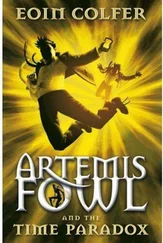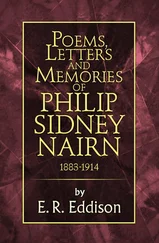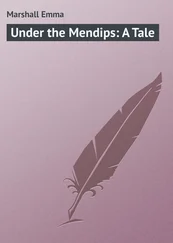Emma Marshall - Penshurst Castle in the Time of Sir Philip Sidney
Здесь есть возможность читать онлайн «Emma Marshall - Penshurst Castle in the Time of Sir Philip Sidney» — ознакомительный отрывок электронной книги совершенно бесплатно, а после прочтения отрывка купить полную версию. В некоторых случаях можно слушать аудио, скачать через торрент в формате fb2 и присутствует краткое содержание. Жанр: foreign_prose, на английском языке. Описание произведения, (предисловие) а так же отзывы посетителей доступны на портале библиотеки ЛибКат.
- Название:Penshurst Castle in the Time of Sir Philip Sidney
- Автор:
- Жанр:
- Год:неизвестен
- ISBN:нет данных
- Рейтинг книги:4 / 5. Голосов: 1
-
Избранное:Добавить в избранное
- Отзывы:
-
Ваша оценка:
- 80
- 1
- 2
- 3
- 4
- 5
Penshurst Castle in the Time of Sir Philip Sidney: краткое содержание, описание и аннотация
Предлагаем к чтению аннотацию, описание, краткое содержание или предисловие (зависит от того, что написал сам автор книги «Penshurst Castle in the Time of Sir Philip Sidney»). Если вы не нашли необходимую информацию о книге — напишите в комментариях, мы постараемся отыскать её.
Penshurst Castle in the Time of Sir Philip Sidney — читать онлайн ознакомительный отрывок
Ниже представлен текст книги, разбитый по страницам. Система сохранения места последней прочитанной страницы, позволяет с удобством читать онлайн бесплатно книгу «Penshurst Castle in the Time of Sir Philip Sidney», без необходимости каждый раз заново искать на чём Вы остановились. Поставьте закладку, и сможете в любой момент перейти на страницу, на которой закончили чтение.
Интервал:
Закладка:
'I could not have saved the lambs' lives,' Lucy said, 'but I am sorry they are dead. I am sorry when any creature dies.'
'I dare say! Be off to bed, for I am locking up in a minute.'
'Where is Mary?' Lucy asked.
'A-bed. That boy has cut his little finger, or some such thing. Lor'! she was like to swoon with terror when she saw the blood; the child himself was not such a coward.'
Lucy hastened upstairs, and found Mary by the window in her favourite seat. A book lay open on her knee, and, when Lucy came in, she held up her hand, and, pointing to the bed, said, —
'Hush! he is asleep.'
'What has happened?' Lucy said. 'Is the boy hurt?'
'He cut his hand with an old knife, and the blood poured forth. Oh, Lucy, if aught were to befall him, I scarce dare think of what would become of me.'
Lucy thought of the strange encounter she had had with the man on the hill path, and wondered whether it were kind to raise her sister's fears about Ambrose.
'Come and sit by me, sweetheart,' Mary said, making room for her sister on the deep window seat. 'I am troubled to-night with a shadow of coming grief. Sure I have had enough, and I am young yet. Twenty-five is young, though I dare to say I seem old to you, little sister. I am perplexed in mind, and tossed about with doubt. Can you think of me as a merry, light-hearted maiden, donning my smartest gown to go at Lady Mary's bidding to the Park, where great festivities were held in honour of the Queen's visit? Ah, child, it was then soft words and flattery turned my head, and I – well, I have rued it to this hour. Thus, dear Lucy, when I think of your going forth in my Lady Pembroke's train, I fear for you. I will pray also, and pray God may watch over you.'
'Then I may go,' Lucy said. 'I may really go. Oh, Mary, Mary, I am so happy!'
Then, remembering her encounter with the stranger she said, —
'I met a man on the hill path as I went to Hillbrow. He scared me a little bit, but George Ratcliffe came up, and he made off and like a ghost vanished.'
'A man!' Mary exclaimed, in a low voice of suppressed fear. 'What man?'
'He was clad in a long cloak, with a cap pulled over his brow. He had evil eyes – dark, piercing eyes.'
Mary Gifford's clasp of her young sister tightened convulsively, and her heart throbbed so that Lucy could feel it as she pressed her closer and closer.
'What did he say to you, this strange man?'
'He said he would fain see little Ambrose, and bid me bring him to the stile where he met me, that he might look at him. He said he would call a curse down on me if I refused. He looked dreadful as he spoke. And then George came. But, Mary – '
For Mary had sprung to her feet, and, with hands clasped and eyes dilated with terror, she stood like one struck down by some sudden blow.
'Promise, swear, Lucy, you will never take the child outside the fence on the hill side. Swear, Lucy.'
Lucy was frightened by her sister's vehemence, and said, —
'Yes, I promise. Oh, Mary, do not look like that. Do you know the man?'
'Know him! know him! Nay. How should I?' Then she said, after a pause, 'Hush! we shall wake the boy. Let us talk no more to-night. Go to your bed, child; it is late, and to-morrow – yes, to-morrow is Sunday – I will go down with you to the church, and await my Lady Pembroke by the lych gate, and you shall have your desire, and God keep you, and bless you.'
Lucy quickly recovered her spirits; her heart was too full of delighted anticipation to have room for any prolonged fear about her sister, though her pale, terror-struck face, seen in the twilight, and her agonised appeal to her to swear what she asked, made her say, as she lay down on her low truckle bed in the little attic chamber next her sister's, —
'Sure Mary must know something of that man. Perhaps he was a boon companion of her wicked husband. Ah, me! it would be a different world if all men were brave and good and noble like – '
Before the name had taken shape on her lips, Lucy was asleep, and in her dreams there were no dark strangers with cruel black eyes and sinister smiles, but goodly knights, in glistening armour, riding out against their adversaries, and goodlier and nobler than the rest, before whose lance all others fell, while the air rang with the shouts of victory, was Mr Philip Sidney.
Sunday morning dawned fair and bright. The bells of Penshurst church were chiming for matins, when Mary Gifford, leading her boy by the hand, stood with Lucy under the elm tree by the timbered houses by the lych gate, returning the kindly greetings of many neighbours and acquaintances.
Overhead the great boughs of the elm tree were quivering in the soft breeze. The buds, scarcely yet unfolded into leaf, were veiled with tender green, while a sheaf of twigs on the trunk were clothed in emerald, in advance of the elder branches, and making the sombre bole alive with beauty, as the sunbeams sought them out, and cast their tiny, flickering shadows on the ground.
The village people always waited in the churchyard, or by the lych gate till the household from the castle came through the door leading from the Park to the church, and this morning their appearance was looked forward to with more than usual interest. Not only was Lady Mary expected, but the Countess of Pembroke and her ladies, with Mr Sidney, and his young brothers, Robert and Thomas, were known to be of the party.
Sir Henry Sidney was seldom able to leave Ludlow for a peaceful sojourn in his beautiful home, and Lady Mary had sometimes to make the journey from Wales without him, to see that all things in the house were well ordered, and to do her best to make the scanty income stretch out to meet the necessary claims upon it.
When two of the gentlemen in attendance came to the gate to hold it open for the ladies of the party to pass, the throng assembled in the churchyard moved up near the porch, and, as Lady Mary came in sight, curtseys from the women and reverences from the men testified to the esteem in which she was held.
Lady Pembroke came next, smiling and gracious. On her sweet face were no lines of the care which marked her mother's, and she looked what she was, a happy wife and mother.
By her side was Mr Philip Sidney, closely followed by Robert and Thomas, who imitated his courteous bearing, and doffed their caps and bowed their heads in acknowledgment of their people's greeting.
The Sidneys were lords of Penshurst in every sense, and the loyalty of their tenants and dependants was unquestioned. It is not too much to say that Philip Sidney was regarded with admiration and respect, seldom equalled, by these simple people in the Kentish village, who felt a right in him, and a pride, which was perhaps sweeter to him than all the adulation he won in Elizabeth's Court.
When the Sidneys' large pew was filled with its occupants, the bell stopped, and the rest of the congregation hastened to fill the benches in the body of the church.
The service was conducted after the Anglican form of worship, but differed in some respects from that of the present day. The Puritans of those times were making every effort to get rid of what, in their eyes, were useless forms and ceremonies, and in many places in England dissension was rife, and the dread of Popish innovations, or rather a return to Popish practices, was mingled with fierce hatred of Papists, and apprehension of their designs against the life of the Queen.
The Sidneys were staunch adherents of the reformed faith, and Philip Sidney was the staunchest of all. He could never forget the atrocities of that summer night in Paris, when the treachery of the king and his mother resulted in the massacre of innocent men and women, whose only crime was their devotion to the faith for which they died.
Philip Sidney had, as we know, protested with bold sincerity against the Queen's marriage with the Duke of Anjou, urging the danger to the Protestant cause in England, if the Queen should persist in her determination.
Читать дальшеИнтервал:
Закладка:
Похожие книги на «Penshurst Castle in the Time of Sir Philip Sidney»
Представляем Вашему вниманию похожие книги на «Penshurst Castle in the Time of Sir Philip Sidney» списком для выбора. Мы отобрали схожую по названию и смыслу литературу в надежде предоставить читателям больше вариантов отыскать новые, интересные, ещё непрочитанные произведения.
Обсуждение, отзывы о книге «Penshurst Castle in the Time of Sir Philip Sidney» и просто собственные мнения читателей. Оставьте ваши комментарии, напишите, что Вы думаете о произведении, его смысле или главных героях. Укажите что конкретно понравилось, а что нет, и почему Вы так считаете.












